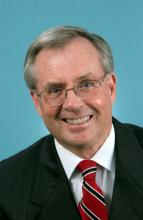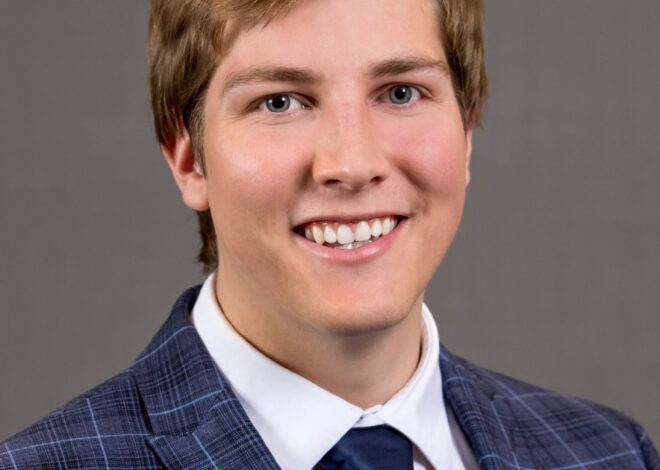
Q&A: SDBOR executive director steps down for retirement
 Jack Warner came to South Dakota six years ago to be at the helm of the state’s public university system as executive director and chief executive officer of the South Dakota Board of Regents.
Jack Warner came to South Dakota six years ago to be at the helm of the state’s public university system as executive director and chief executive officer of the South Dakota Board of Regents.
He came with degrees from Boston College, Springfield College and the University of Vermont, and arrived in South Dakota in 2009 after serving as higher education commissioner in Rhode Island for seven years with a track record of tackling leadership positions.
A native of Massachusetts, Warner said he did not know what kind of reception he would get in the Mount Rushmore state. After announcing his retirement March 16 with plans to return to his family on the East Coast, however, he said it is with “sweet sorrow” that he leaves South Dakota.
The Volante spoke to Warner about his past six years working with the public colleges and universities in the state, and what’s next for the long-time higher education advocate.
What was the driving force in announcing your retirement? Was it a difficult decision?
Yes, it was a difficult decision, because I enjoy my work immensely. It wasn’t easy to give it up, especially when I get to work with such a wonderful Board of Regents, excellent university presidents and have a good relationship with the Legislature, the governor and his staff. It was not easy to give that up. At the same time, it was one of those years when you reach one of those magic ages. I had to think through what should I be doing. I have family back in Rhode Island, and the call of my family back East is very strong. All of those factors contributed.
You had the second longest tenure of an executive director in the history of the South Dakota public university system. What does that mean to you?
I must have been doing something right. I knew I couldn’t reach first place, so I thought I might as well go for second place. But really, I’ve been doing this kind of work in higher education for years, in Rhode Island and Massachusetts, and it’s been a privilege to do so.
When you initially accepted this job, what was the most significant challenge that you wanted to address? Do you feel like you did?
The issues are the same for public higher education systems everywhere. Affordability is a big issue. We’ve done a good job despite some deep budget cuts the first few years I was here. We also reduced the required credits to help with affordability. Maintaining a higher standard of academic quality is also incredibly important.
How did growing up on the East Coast hurt or help you when you first came to South Dakota? Did that change as the years went by?
I think the worst fear of the Regents at the time was that I would come in talking like Teddy Kennedy. But I came from the western side of the state, so we sound like Midwesterners. The people here are kind and courteous, and the culture in this legislature is the best I have seen with all the legislators I work with. Was it hard to move from a well-populated place? Yes. But the people have made it worthwhile.
What kind of legacy or impression do you think you left with the South Dakota Board of Regents and higher education in the state?
We have a strategic plan in place that will provide a blueprint until 2020. My successor can make changes as they see fit, but I think we will continue to make student success, research agenda and academic quality our priorities. It is no greater compliment than to build on what is here.
Is there anything you regret or wish you could have changed or improved as executive director?
There is still work to be done on the affordability front. The million and a half endowment is still modest, and I’m sure students would like to see it expanded … There is always work to be done on facilities. That is an area that could improve. An area that I am quite proud of, too, is the collaborative work with K-12 … that work needs to stay on track. It is a matter of mindset that higher education should be involved with that.
What are you going to miss most about South Dakota?
I’m going to miss the people. The Student Federation and student leaders in the state are incredible individuals. I would put them up against any other students I have worked with in the past. But yes, the people are by far the thing I’ll miss the most.
I know you plan to move back to Rhode Island after you retire, but you don’t seem like the kind of person to just stop working altogether? What does retirement look like to you?
I will cycle more, maybe kayak more. I live on the water, and I love to jet ski. I golf and ski, so I’ll get to have a lot more ski weekends with the grandkids. And you’re right, I can’t really stop working in higher education. I’ll be teaching at the graduate level, and I’m also working on a 40-college consortium, it’s called the New England College Consortium, that focuses on professional development.
What will the next few months look like for you?
Busy ones. The Dakota State presidential search is coming down to the wire in April. My position search will be in May. We still have a few board meetings left. And I don’t intend to wind down until it is over.
What would you like to see in your replacement?
A sense of humor certainly helps. A relationship builder that can work with the governor and his staff, the Legislature, and who can collaboratively deal with presidents are all essential skills for someone that does this kind of work. It’s a very collaborative position, and that means being able to manage those processes.
How do South Dakota college students compare to others you’ve been exposed to?
I would describe South Dakota students as thoroughly engaged, very respectful and incredibly smart. They are not shy about asking provocative questions, but it’s always done in a respectful way. And respectfulness sets them apart.


